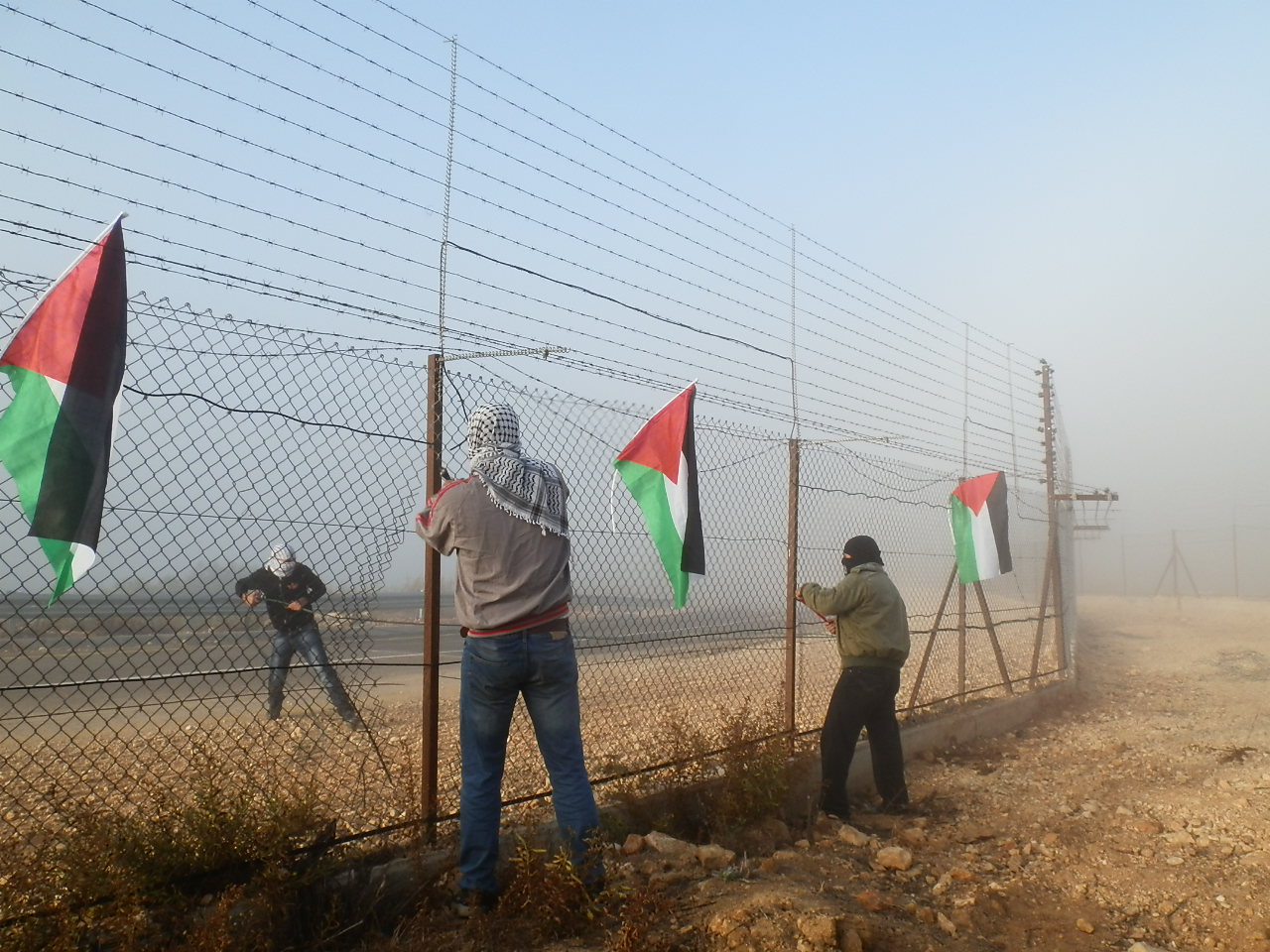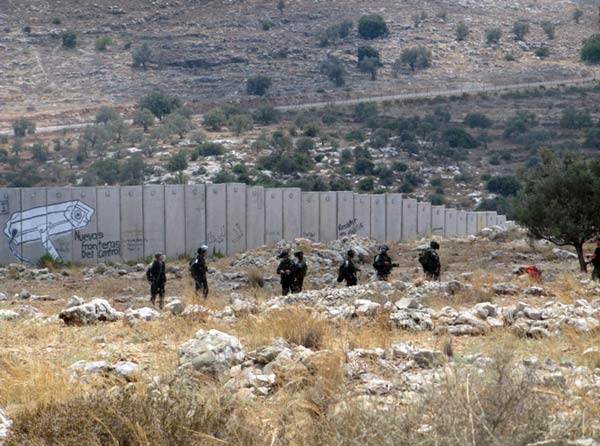Tag: Apartheid Wall
-
Updated with video: Apartheid wall smashed on anniversary of independence declaration
15th November 2013 | International Solidarity Movement, Ramallah Team | Bir Nabala and Rafat, Occupied Palestine This morning, November 15, 2013, 25 years after Yasser Arafat declared independence of the Palestinian state, a group of Palestinian activists undertook a direct action against the annexation wall and fence, supported by both Israeli and international activists. At approximately…
-
Bil’in continue their weekly demonstration against the occupation
12th October 2013 | Friends of Freedom and Justice | Bil’in, Occupied Palestine Yesterday, 11th October, Israeli soldiers fired tear gas canisters at a Palestinian family while they were attempting to harvest their olives. This coincided with the weekly Bil’in demonstration against the Apartheid Wall where Israeli forces fired tear gas canisters, stun grenades and rubber-coated steel…
-
The weekly demonstration continue in Ni’lin while harassment and night raids increase
13th July 2013 | International Solidarity Movement, Ramallah Team | Ni’lin, Occupied Palestine On Friday, 13 July, around 30 people gathered for the Friday demonstration in the outskirts of Ni’lin village. After finishing prayers Palestinians marched towards the Apartheid Wall that has annexed the land of the village, along with internationals. From the beginning of…



